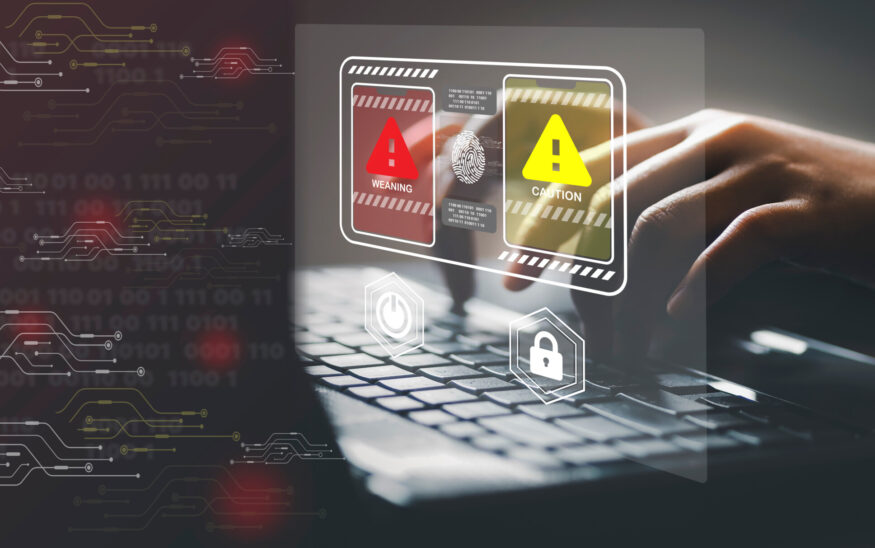Ensuring Business Survival: The Vital Role of Cybersecurity for Small Businesses
How to protect your small business from ever-increasing cybersecurity threats and attacks in the digital age.
Andrew Deen //October 17, 2023//


Ensuring Business Survival: The Vital Role of Cybersecurity for Small Businesses
How to protect your small business from ever-increasing cybersecurity threats and attacks in the digital age.
Andrew Deen //October 17, 2023//
Security is important no matter the situation or environment, so why would cybersecurity not be a vital aspect of running a small business? Regardless of the size, stage of growth, product or industry that a small business owner is in, cybersecurity needs to be one of the more important matters attended to.
There are plenty of reasons for this, and while some of those may be obvious, there are other points that tend to be forgotten or overlooked. Much of this is due to the all too regular idea that the odds of such a thing happening are just so small. That is the kind of assumptive attitude that gets businesses into trouble. That alone is why cybersecurity is vital for small business protection.
READ: The FTC Safeguards Rule — Why Your Business Needs to Improve Cybersecurity in 2023
Why investing in Cybersecurity is Important
Cybersecurity has been a challenge to maintain even from its earliest development in the business world, but the more complex, technologically advanced and inventive cyber systems get, so do the criminals.
These developments in information technology and operating systems are double-sided: There are great benefits to individuals, economies and businesses all while creating more opportunities and new ways in which people can be scammed. The only way to protect against such actions is to employ powerful countermeasures.
It does not matter what size a business is, if there are weaknesses for hackers and criminals to find, they will eventually exploit them.
One mistake of small businesses is to assume that their size means the information or assets they possess are not tempting for criminals. While it is true that the larger bank accounts and information databases of large businesses are much more attractive to cyber criminals, it doesn’t mean that smaller companies are immune to disaster.
READ: Navigating the Cybersecurity Landscape — Protecting B2B Companies from Advanced Cybercrime Tactics
How Financial capital helps with security
A significant difference between major companies and small businesses is that the former has far more capital which can be invested into advanced, powerful and effective systems and teams that are able to effectively manage security.
What is often hard to believe — and upsetting to hear — is that even some of the most impressive and trusted companies, often worth billions of dollars, can have security breaches.
One only needs to listen to the news or do a quick internet search to be reminded of the frequency with which cybercrime occurs. While it is the larger, more shocking data breaches that are what will make headlines, that does not mean that midsize or small businesses are immune to or have been left out of the rising statistics.
According to a report done during the Verizon Data Breach Investigations, around 43% of breaches occur in small businesses.
READ: Protect Your Online Business — Minimizing Cybersecurity Risks in a Remote Environment
Vulnerability of small businesses
The fact that many small businesses may not have such liquidity makes them all the more vulnerable to criminal activity. That makes small businesses easier targets. Lawbreakers know this and thus may be very keen on exploiting low-level security systems. As such, small businesses are vulnerable in a variety of areas:
- Personal information, whether client or employee, being stored in unprotected systems can be snatched out of something as common as an email account. That information can be resold for healthy profits. Worse still is that there are occasions when businesses and individuals do not even know that their personal information has been compromised.
- Intellectual property can often be worth far more than a database of a client’s personal information. Years of hard work can be ruined in seconds.
Being that the odds and potential consequences of a cyber-attack are both high for large or small businesses, it is clear that cybersecurity needs to be a constant, forefront concern in business owner’s minds.
 Andrew Deen has been a consultant for startups in a number of industries from retail to medical devices and everything in between. He implements lean methodology and is currently writing a book about scaling up business.
Andrew Deen has been a consultant for startups in a number of industries from retail to medical devices and everything in between. He implements lean methodology and is currently writing a book about scaling up business.

























